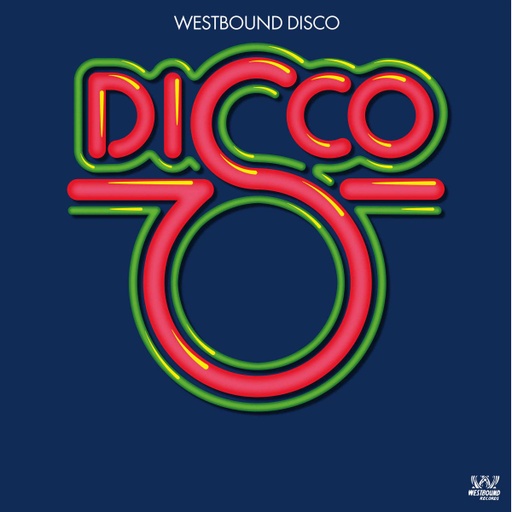TRACKLIST
A1 –C.J. & Co Devil's Gun 7:13
A2 –Fantastic Four B.Y.O.F. (Bring Your Own Funk) 6:04
B1 –Dennis Coffey Wings Of Fire 7:39
B2 –The Mike Theodore Orchestra High On Mad Mountain 8:11
C1 –The Clark Sisters You Brought The Sunshine (Into My Life) 5:47
C2 –Detroit Emeralds Feel The Need 7:03
D1 –Crowd Pleasers (2) Freaky People 6:59
D2 –Eramus Hall Beat Your Feet 5:39
DESCRIPTION
Detroit meets New York when Westbound’s Tom Moulton and Issy Sanchez take on disco.
I think by this time we know the true story of disco. Not, as it was once portrayed, the cheesy pop music of the late 1970s. Not John Travolta, flashing dancefloors or Broadway hits re-imagined with a four/four beat. Sure, this is what it became for a short while on the back of the success of Saturday Night Fever, but its roots were in the underground and with clubbers who wanted their nights soundtracked by great music, chosen by visionary selectors.
For all intents and purposes, disco was invented in New York in the first half of the 1970s, in a series of clubs where those on the edge of society went to forget about their troubles and have a good time. It was in this frenzied atmosphere where seamless mixing became part of the DJ’s repertoire and where the enterprising could edit tracks to extend their most dancefloor-friendly elements.
But what has this got to do with Westbound, a Detroit-based indie famed for the mainstream soul of Denise LaSalle and the Detroit Emeralds and the downright out there records of Funkadelic? Well, in 1975 Westbound signed up producers Dennis Coffey and Mike Theodore, both of whom knew something was going on in the clubs of New York. When they presented their new project C.J. & Co., they suggested their first single be mixed by disco pioneer Tom Moulton.
Moulton had created his own edits that became popular when cut to acetates for top DJs, which led him being employed by several labels – most notably Scepter – to create what were effectively the first DJ remixes. It was this work that drew Coffey and Theodore’s attention.
When C.J & Co.’s ‘Devil’s Gun’ became a massive hit, Westbound decided that Moulton should be involved in more of their releases. Over a two-year period he mixed almost every record Wesbound put out, putting the label firmly on the disco map.
The most famous was his 1977 reworking of the Detroit Emeralds’ 1972 hit ‘Feel The Need In Me’ (re-titled ‘Feel The Need’), which became a worldwide smash. Moulton’s mixes of Dennis Coffey’s own ‘Wings Of Fire’, King Errisson’s ‘Manhattan Love Song’ and Caesar Frazier’s instrumental ‘Song Of The Wind’ are also present and correct here.
By 1978 other mixers had emerged, among them Issy Sanchez, who created the incendiary mix of veteran Detroit vocal group the Fantastic Four’s ‘B.Y.O.F. (Bring Your Own Funk)’, which became a big club hit. Mike Theodore soon grew so confident in the genre that he mixed all the music on his “High On Mad Mountain” album, including the title track which was given a 12-inch release, while others such as Eramus Hall and the Crowd Pleasers didn’t feel the need for a remix – they just worked.
By the end of the decade the disco bubble had burst. There would be no more multi-platinum disco records and the club scene would disappear underground, eventually spawning the house scene that hit the mainstream in the late 80s. Westbound, meanwhile, scored its last big club hit in 1983 with the Clark Sisters’ amazing ‘You Brought The Sunshine’, a gospel rewrite of Stevie Wonder’s ‘Master Blaster (Jammin’)’ mixed by future house music legend Hippie Torrales.
“Westbound Disco” is the encapsulation of a label that embraced the new club culture of the 1970s and was rewarded with a trove of great music.
DEAN RUDLAND
